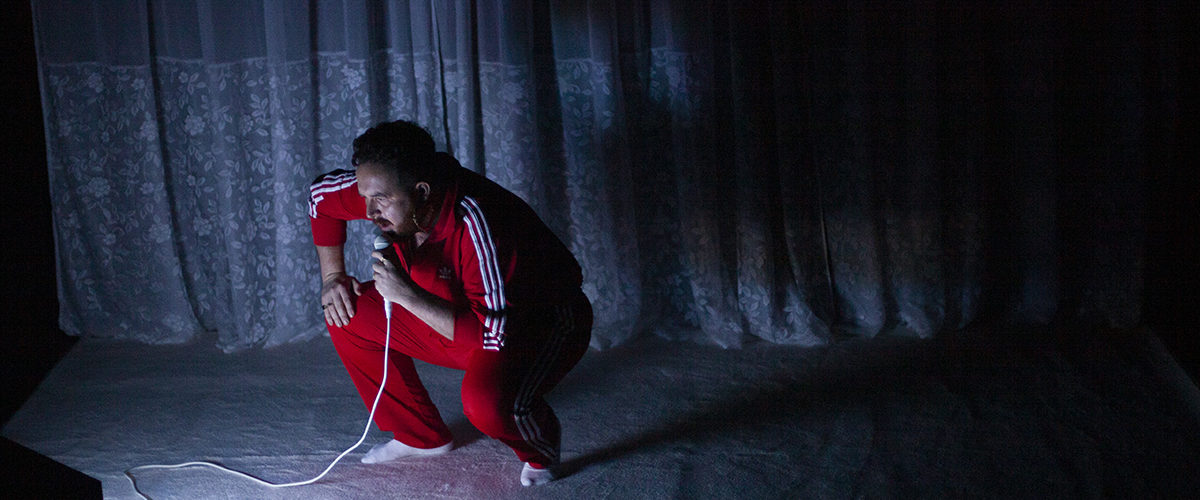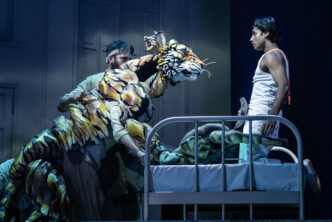In a 1994 article entitled, “Discussing the Undiscussable”, New Yorker critic, Arlene Croce, explained her refusal to review a piece by choreographer, Bill T. Jones by accusing him of presenting ‘victim art’. Jones’s show, Still/Here, employed terminally sick AIDS patients, relating their lived experiences, during the performance. How can I offer a critique of sick people’s lives, asked Croce?
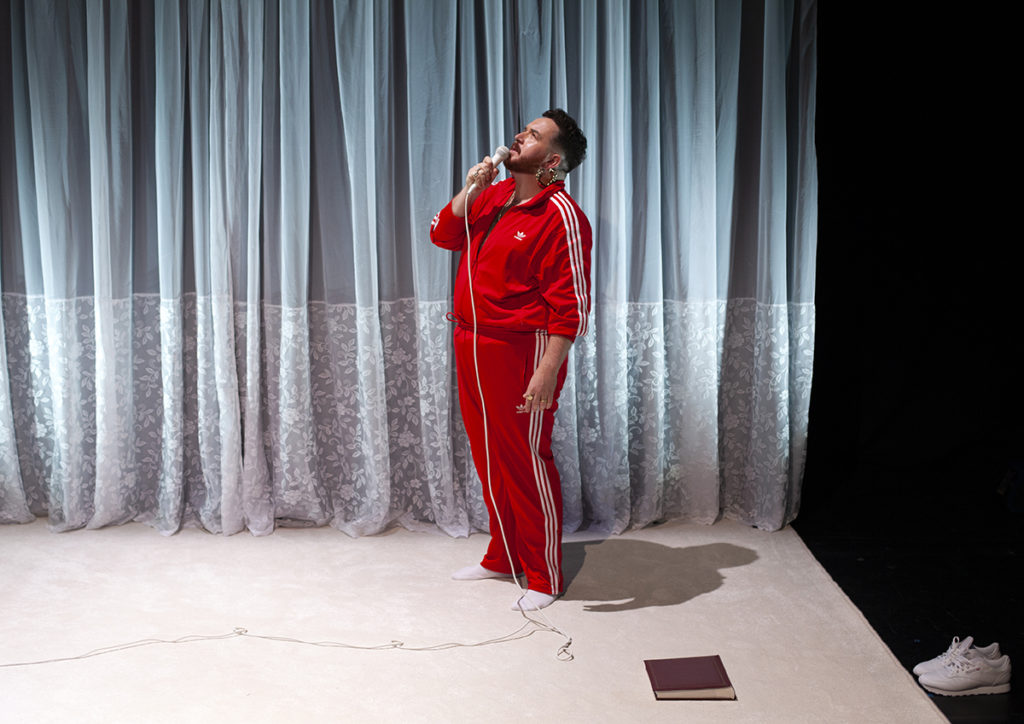
Climaxing as it does, with his emotional recounting of a series of difficult, even traumatic, events he endured growing up on a tough estate in Kentish Town, Scottee’s show, Class, has something of the same challenge for the critic. More than once, he struggles to keep a lid on his emotions – is this real or is he acting? Does it matter? Is this art or ‘life porn’? Does it matter?
Do the working class poor (14 million of them, and counting) need our love or our money? You decide. (You will get to do this, by the way).
While I understand Croce’s objections, I am going to review Class. One reason is that Scottee is attempting to do something that matters – bring a truthful account of the lives of the working class poor to an essentially middle class audience. (An account, by the way, much of which chimes with this reviewer’s own childhood memories – that there are precisely 30 years between Scottee’s birthdate and mine, and yet so little has changed, should give us all pause for thought.)
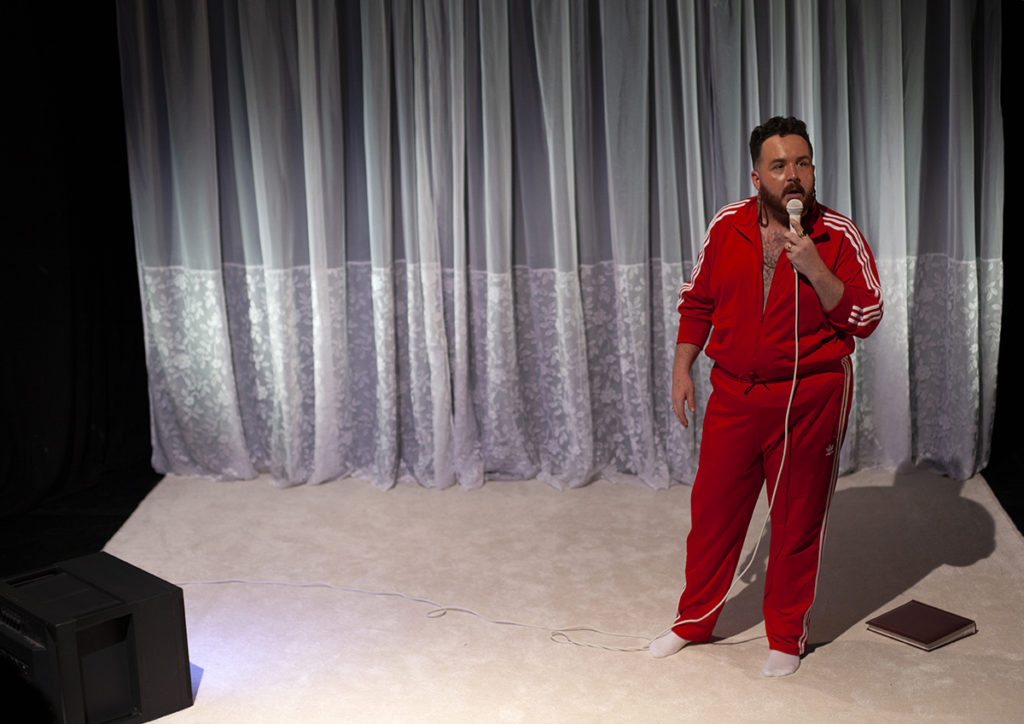
A second reason is that so much theatrical representation of the working class lacks truth and insight (often giving the impression that the writer’s only first-hand knowledge is via a few distasteful encounters while living in student digs). As a Boltonian, I can proudly exempt Bolton playwrights from this failing; Bill Naughton, Les Smith and Jim Cartwright have, each in his own way, presented working class life in empathic yet unblinking ways. Scottee, taking a demanding autobiographical route, tries to do the same.
He can be scathing about middle class misconceptions, but not (at least on a one-to-one basis) brutal.
“We’re all friends. Let’s keep it light and lovely!”
It isn’t all hunger, horniness and heartbreak, especially early on. Scottee prances onstage –crimson shell-suit, budgie-swing earrings – and berates us with some excellent observational humour. There are plenty of laughs, here. Of course, much of the comedy is double-edged: how did you play out? How did you lose your virginity? What did you do when someone knocked at the front door?
“Nice alcoholics? Good addicts?” Yes, says Scottee. There are such.
Painting a vivid, personal portrait of often bleak and cruel, poverty-stricken lives, Scottee, wisely, doesn’t offer answers – he leaves us with the question: what can we do about it? What can be done that doesn’t just settle for ‘performed kindness’, ‘performed socialism’?
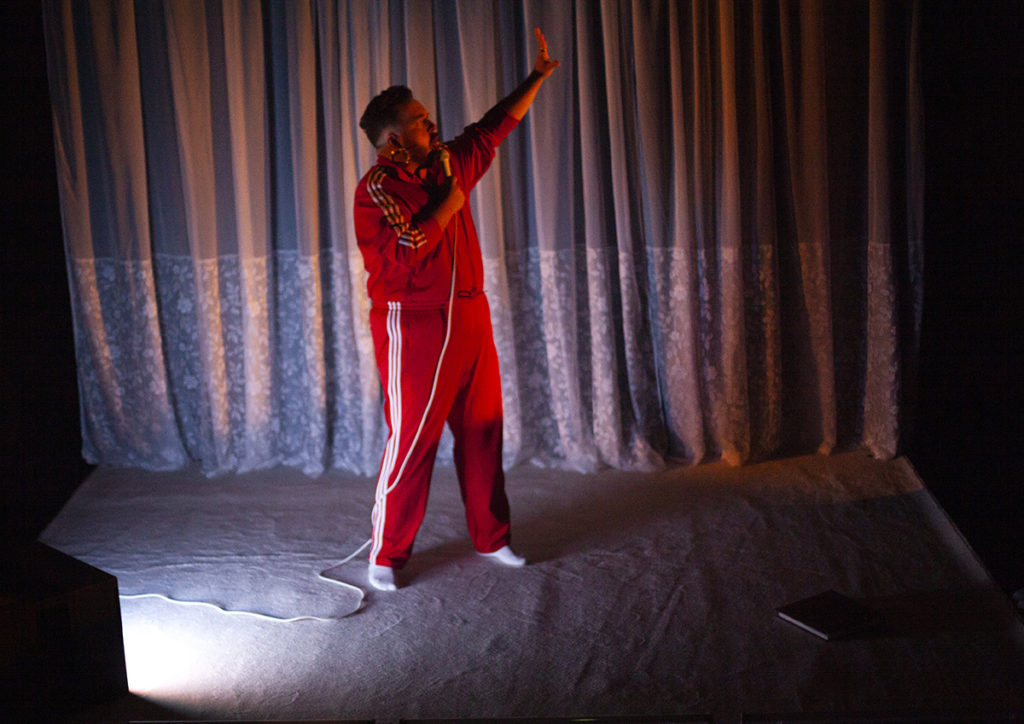
It struck me, leaving the auditorium, how loud and chattery the (largely middle class) audience were. I’m not sure that’s encouraging. It was as if this was just another show. Just like any other fringe production. See it; give it a standing ovation; get out; laugh and chatter your way to the next one.
I suspect that isn’t the response Scottee hopes for. Maybe a little quiet reflection? Maybe a sincere discussion about what ought to be changing, but isn’t? He deserves more. So do the 14 million.
★ ★ ★ ★Scottee: Class is at Home, Manchester from 23-26 October 2019.

